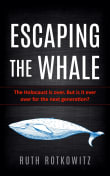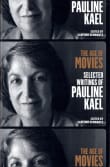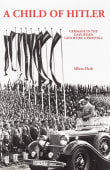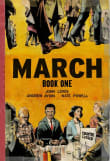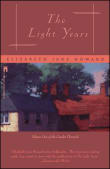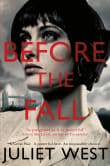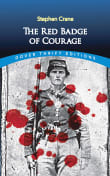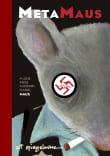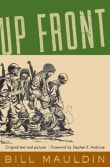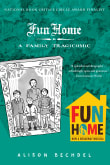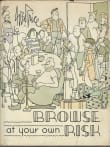Maus I
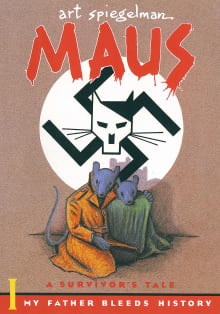
Book description
The bestselling first installment of the graphic novel acclaimed as “the most affecting and successful narrative ever done about the Holocaust” (Wall Street Journal) and “the first masterpiece in comic book history” (The New Yorker) • PULITZER PRIZE WINNER • One of Variety’s “Banned and Challenged Books Everyone Should Read”…
Why read it?
8 authors picked Maus I as one of their favorite books. Why do they recommend it?

I read this powerful graphic novel series when the first collections came out in the 1980s.
It shows the horrors of the Holocaust and the impact it has on the families of the survivors. Maus is best known for depicting Jews as mice and Nazis as cats, but Art’s troubled relationship with his father Vladik and the death of his mother Anja by suicide frame the story.
Maus is my favorite graphic novel series and a must-read for understanding the Holocaust and how it shaped Jewish life since.
From Matthew's list on Jewish families in crisis.

This graphic novel tells the story of how Vladek–Spiegelman’s father–survived the Holocaust. Though Spiegelman illustrates Germans as cats and Jews as mice, this story is not cartoonish and it pulls no punches. We see the horrors and brutality of this awful event.
Reading this book made me realize there’s no such thing as “financial security.” Vladek and his wife were wealthy prior to WWII. Their story illustrates that money is not safety, and that any fortune can be taken away.
But the book also provides an odd sort of hope. Vladek was masterfully resourceful, which helped him succeed prior to…
From Emily's list on changing the way you look at money.

What Art Spiegelman does is nothing short of miraculous – he popularizes a story most people only know at a great remove, he makes it personal while making it universal, and uses graphics to deepen rather than to trivialize a heartbreaking historical event, and he helps explain the horrors of the Shoah to a younger generation puzzled by the odd behaviors and tempers of their elders.
From Michael's list on the Holocaust and generational trauma.
If you love Maus I...

One of the great books of the 20th century.
An utterly original, powerful work of comics and nonfiction which deals with Art Spiegelman interviewing his father about his experiences as a Polish Jew in the Holocaust and a prisoner in Auschwitz.
The book—with people depicted in animal cartoon form — is the father’s story, the son’s story, and the world’s story. A work—like much profound art—that changes with each encounter.
From John's list on merging art with personal history.

This extraordinary graphic novel was recommended to me by my teacher training tutor years ago and I’ve never quite got over it. It’s a work of genius, that approaches the horrific subject of the Holocaust via the narrator’s father, rendering the Jewish people as mice and the Nazis as cats. It’s incredibly powerful and yet so easy to read, deceptively so. When I came to write my own novel about the Warsaw Ghetto and forest partisans of World War Two Poland the education that Maus gave me was never far from the forefront of my mind. A brilliant lesson in…
From Rebecca's list on how people get swept up in the winds of war.

Variations of the Holocaust story have been told countless times, but Spiegelman’s tale about how his father survived the Nazi terror is as fresh and important as any. I especially love how he captures his father's Polish-English accent. With the mangling of syntax is born a new kind of poetry. This is widely—and justifiably—regarded as one of the greatest graphic novels ever written.
From Conrad's list on memoir-based graphic novels.

I don’t usually read graphic novels, but this I highly recommend. It’s a masterpiece of visual storytelling. Set in 1970’s New York, it shows Spiegelman interviewing his Polish-born father about his life and experiences during the rise to power of the Nazis and during the war years. The artist has used animals to represent nations: the Germans as cats, Jews as mice, Poles as pigs, Americans as dogs, etc. It is not an easy read, vividly depicting the cruelty suffered during the Nazi period but also, equally importantly, though very much less explored in literature, how much those who suffered…
From Louise's list on Nazi Germany.

Maus is about the Holocaust. It’s also a comic book, in which the various characters are depicted as animals – the Jews as mice, the Nazis as cats, etc... The presentation of the Holocaust in comic form was startling then—and still is, despite the flourishing of the graphic novel form. But on top of the innovative form, Spiegelman breaks another taboo in moving back and forth between the story of his father, who was a Holocaust survivor, and his current relationship with him, which is full of resentment and complaints. The notion that an author writing about a Holocaust survivor…
From Susan's list on popular culture.
Want books like Maus I?
Our community of 12,000+ authors has personally recommended 100 books like Maus I.




